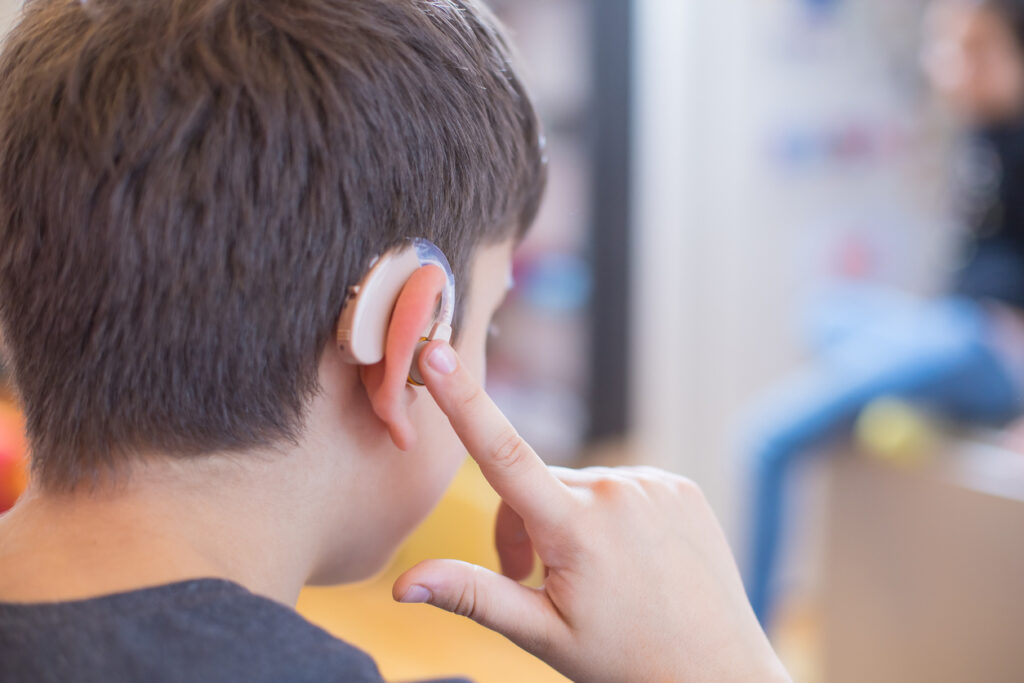Sunday marked World Hearing Day. This year the focus was on changing mindsets and ensuring deaf children and adults can access the hearing care and support that is right for them.
Here in the UK our collective expectations and mindsets of what deaf children can achieve is far, far too low. Research commissioned by charity Auditory Verbal UK last year found that less than half of UK adults (41%) believe a child who is born profoundly deaf can learn to speak as well as a child without hearing loss.
But with early and effective support, deaf children can learn to speak as well as their hearing peers and have the same opportunities in life.
I have seen this first-hand through deaf children like Noli, whom I had the pleasure of hosting for work experience in Parliament at the end of last year. Noli contracted meningitis when she was a young child and was diagnosed shortly after as profoundly deaf. Noli was supported to learn to listen and talk with Auditory Verbal therapy – a robust, specialist approach to developing spoken language through listening for young deaf children. She is now studying at Durham University and can play several different musical instruments. Noli is challenging perceptions of what deaf children can achieve and shows us what is possible with early, effective support.


For Noli and many others, the benefits of Auditory Verbal therapy are extraordinary. Around four in five deaf children who attend an Auditory Verbal therapy programme for at least two years achieve the same level of spoken language as their hearing peers, rising to 97 per cent of children without additional needs. Most of these children are attaining educational outcomes on a par with hearing children.
However, the unfortunate truth is that less than 10% of deaf children under 5 in the UK can currently access Auditory Verbal therapy through existing publicly funded services close to them.
With thousands of deaf children currently facing a lifetime of disadvantage without access to early support to develop the language and communication skills needed to thrive, urgent action is needed. And early and effective support should be available for all deaf children whether their families wish to use spoken language, sign language, or both.
This week’s Budget provides an ideal opportunity – perhaps the last one before the general election – to begin to tackle this injustice and transform the lives of deaf babies and children across the country. An investment of just over £2 million a year for the next 10 years is all that is needed to ensure that Auditory Verbal therapy is available to all those families who wish to access it.
Economic analysis based on the Treasury’s own model show that this investment could deliver an economic benefit of £152 million over 10 years and an incredible £11.7 billion over 50 years, through a combination of improved quality of life; employment prospects; lower costs of schooling and avoided injuries. In addition to health and social benefits, investing in Auditory Verbal therapy makes financial sense, even in a tight fiscal environment.
We have one of the best Newborn Hearing Screening Programmes in the world and state of the art hearing technology, such as hearing aids and cochlear implants, available to babies and young children through the NHS and local services, and we should be proud of this. But to maximise these investments and ensure more deaf children have the same opportunities in life as their hearing peers, I urge my colleagues in Government to invest in Auditory Verbal therapy.
By providing the small amount of vital funding needed, starting with a commitment of just over £2 million this week, we can end the current postcode lottery for Auditory Verbal therapy. Chancellor, it’s over to you. With your support, we can transform outcomes and opportunities for deaf children now and for years to come.
Politics.co.uk is the UK’s leading digital-only political website, providing comprehensive coverage of UK politics. Subscribe to our daily newsletter here.












